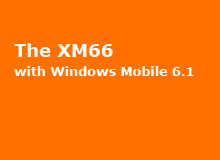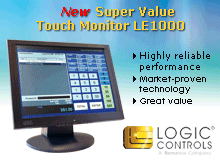
Michael Kachmar, Editor
(If your e-mail client does not display this properly, click here.)
This Week’s Product Pick
Datamax-O’Neil (Orlando) unveiled its next-generation A-Class Mark II print engine, which combines an innovative design with unique features. A stainless-steel enclosure offers protection from challenging environments such as food and beverage manufacturing plants, and state-of-the-art electronics deliver the performance needed for fast-moving, multi-shift assembly lines and high-volume label processing. Available with 203, 300, 400, and 600-dpi configurations, the A-Class Mark II offers the broadest range of resolutions. The printer’s enhanced graphic display facilitates set up and operation, while patented IntelliSEAQ technology provides proactive diagnostic and reporting capabilities. Datamax-O’Neil’s emulation software allows A-Class print engines to run in competitive software environments, simplifies integration into existing applications, and eliminates the need to change label formats, according to the company. Finally, the A-Class Mark II has an RFID option, which allows users to encode smart labels at the point of print, where most experts agree such encoding should take place. “Working closely with our customers to understand how their needs are evolving, we have expanded the capabilities of the A-Class print engine to meet new requirements that blend high performance and operability with reduced cost of ownership,” stated Cindy Guiles, A-Class Product Manager for Datamax-O’Neil. “The A-Class Mark II was developed for 24/7 operations that require optimal throughput, maximum uptime, and easy integration into existing solutions. It provides easy access to components, making preventative maintenance simple, with our modular design allowing most operations to be done on-site with minimal downtime.”
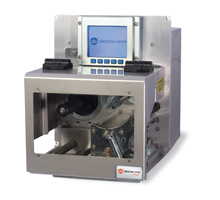
A-Class Mark II Printer from Datamax-O’Neil
COMPANY BUSINESS Food for Thought from GS1 GS1 US (Lawrenceville, NJ), the not-for-profit supply chain standards group for Auto ID and Electronic Data Interchange (EDI), has launched the Foodservice GS1 US Standards Initiative with the support of 55 foodservice manufacturers, distributors, and operators. The program calls for the adoption of a common timeline for voluntary individual company implementation of GS1 Global standards for company identification, item identification, and product description. Of the founding member companies, 45 have already committed to this common timeline. The Foodservice Initiative will strive for 75% adoption of GS1 standards throughout the foodservice industry, as measured in terms of revenue, by 2015, and has been endorsed by the International Foodservice Manufacturers Association (IFMA), the International Foodservice Distributors Association (IFDA), the National Restaurant Association, and GS1 Canada Foodservice. Three main objectives were cited: drive waste out of the foodservice supply chain; improve product information for customers; and establish the foundation for improving food safety and traceability. “Unified Foodservice Purchasing Co-op, in managing the supply chain exclusively for Yum! Brands, fully supports the Foodservice GS1 US Standards Initiative,” testified Daniel Woodside, President/CEO of this founding member. “We began our project in 2005 utilizing standardized barcodes on our product cases and anticipating benefits for all our business partners. As we now begin to realize some of those benefits, we are excited to share our learning with the industry.” As with past GS1 efforts, the roadmap to implementation includes several major unfoldings. By Q4 2009, companies are expected to assign GS1 Global Location Numbers to their headquarters. By Q3 2010, manufacturers are expected to assign GS1 Global Trade Item Numbers to products and to include them on order guides and other trading partner documentation. Finally, by Q2 2011, manufacturers and brand owners will publish product and company identification and related logistics information to trading partners. Also, distributors will retrieve product information and populate back-end systems and customer product catalogues. Trading partners choosing to adopt and implement GS1 standards will access product information through the GS1 Global Data Synchronization Network, or GDSN. “The scores of foodservice companies voluntarily adopting GS1 standards along a common timeline is a powerful testament to their commitment,” declared Bob Carpenter, CEO of GS1 US. “We pledge to support foodservice with world-class implementation guidance, as we’ve done for 25 other industries, including the retail food industry.”
CipherLab Scales Summit CipherLab (Taipei, Taiwan) has forged an alliance with Summit Data Communications (Akron, OH), the provider of Wireless LAN radio modules and cards for mission-critical device mobility. Summit’s embedded Wi-Fi solutions will enable new CipherLab mobile computers to establish secure and reliable wireless network connections for target environments such as factories, warehouses, and retail locations. In particular, use of Summit technology elevates CipherLab to Cisco Compatible Extensions (CCX) certification, demonstrating support for Cisco innovations for security, mobility, quality of service, and network management. CipherLab’s new mobile computers also support all key industry standards, including the highest level of Wi-Fi security, WPA2 Enterprise. “CipherLab is excited to partner with Summit to offer the best Wireless LAN capabilities in the AIDC industry,” stated Sherman Chuang, President of CipherLab. “The new flagship CipherLab mobile computers, the 9300 and 9600 series, which are being launched this quarter, feature Summit Wi-Fi inside. CipherLab’s extensive channel coverage will bring Summit Wi-Fi to many industrial users.” “CipherLab mobile computers support WPA2 Enterprise with a broad range of options, including all popular authentication types,” said Chris Bollinger, Summit’s VP of Sales and Marketing. “It is easy to configure CipherLab computers for even the most secure networks, including those that are compliant with the Payment Card Industry Data Security Standard (PCI DSS) or the Health Insurance Portability and Accountability Act (HIPAA).”
|
Worth Your While
2009 IFDA Distribution Solutions Conference
International Foodservice Distributors Association
October 19-21
Baltimore
NACS Show 2009
National Association of Convenience Stores
October 20-23
Las Vegas
BAI Retail Delivery Conference & Expo
Bank Administration Institute
November 3-5
Boston
IH/M&RS
International Hotel/Motel & Restaurant Show
November 7-10
New York
Synergy 2009 Customer Conference
Retalix
November 8-11
Dallas
Fall 2009 Self-Service Expo
KioskCom
November 10-11
New York
NRF 99th Annual Convention & Expo
National Retail Federation
January 10-13, 2010
New York
RSPA Inspire 2010
Retail Solutions Providers Association
February 7-10, 2010
Cancun, Mexico
Connect 2010
Radiant Retail User Conference
February 24-26, 2010
Atlanta
ALL IN THE FAMILY
Keeping Track of Dolphin
Honeywell Scanning & Mobility (Skaneateles Falls, NY) has extended its Dolphin 7600 mobile computer with built-in GPS tracking hardware. Location-based data collected by the Dolphin 7600 can be used for business intelligence systems and strategies, such as route optimization and delivery verification, according to the company. In addition, users gain the convenience of an all-in-one, streamlined solution for both data collection and popular GPS functions, since the flashlight form-factor of the Dolphin 7600 has not been compromised.
“We’re offering GPS technology on the 7600 specifically to address the needs of the transportation and logistics industries, where tracking field assets and optimizing fleet routes are paramount for increased business efficiency,” reported Garrison Gomez, Manager of Mobility Marketing for Honeywell Scanning & Mobility. “Incorporating location-based capability into the industry-proven Dolphin 7600 is another example of how Honeywell listens and responds to our customers.”
The Dolphin 7600 with GPS comes with all of the features of the standard model. The ergonomic one-handed design of the device was built to be held comfortably over extended periods. Shift-PLUS power management technology provides more than 10 hours of battery life, eliminating the need to replace the battery during single work shifts. Adaptus Imaging Technology allows the Dolphin 7600 with GPS to capture images and read 1D and 2D barcodes as well as OCR fonts. Finally, the GPS unit connection gets handled through the onboard Microsoft Windows Mobile 6 operating system, meaning no extra installation, configuration, or customizing of proprietary drivers, applications, or services is required.
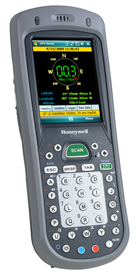
Dolphin 7600 Now Sports GPS Capabilities
Cherries Keep Falling
Cherry Electrical Products (Pleasant Prairie, WI) shipped its new Stream XT ultra-flat keyboard with “whisper” keystroke technology for nearly silent operation and high resistance to liquid spills. With an overall height of less than one inch, the Stream offers an ergonomic, flat design that complements contemporary workplaces, according to the manufacturer. Cherry Stream XT comes USB-corded and also equipped with PS/2 adapter. In addition, it delivers standard keystroke lifetime of 10 million clicks, plug-and-plug functionality with no software installation, and six hot keys for volume control and media playing.
Cherry also announced that its SR-4300 ExpressCard reader and ST-1210 stand-alone smart card readers have received FIPS 201 certification from the General Services Administration (GSA) for use with Personal Identification Verification (PIV) smart cards. The ST-1210 measures 105 mm x 70 mm x 12 mm (about 4 in. x 2.75 in. x 0.5 in.), features CCID interface and USB connectivity, and was designed for extreme portability. The SR-4300 ExpressCard has already been bundled with notebooks for use by federal government agencies, where it displaces PC cards.
Cherry’s new smart card readers also bring PC/SC (Personal Computer/Smart Card) compliance and compatibility with ISO 7816 (Class A,B, and C), so they fulfill typical applications for Single Sign-On (SSO) and logical access control. Both SR-4300 and ST-1210 carry two-year warranties and feature typical operating life of 100,000 card swipes. Under Homeland Security Presidential Directive 12 (HSPD-12), the National Institute of Standards and Technology developed Federal Information Processing Standards, or FIPS, to define technical requirements associated with PIV cards.
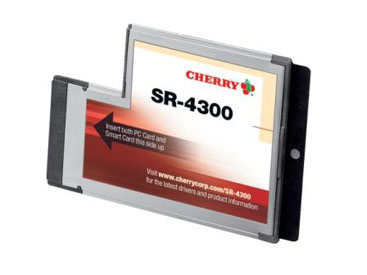
Cherry’s SR-4300 ExpressCard Reader
Join the Party at No Charge
Do you need to reach the POS & Auto ID resellers who really drive business—in the most targeted editorial environment, and on the most cost-effective basis?
E-mail Michael
Kachmar for advertising information,
or call 973-270-3284
Did you miss one of our issues and suddenly realize your competitors know more than you do?
Hurry ! Use the links below to catch up :
PARTNER PROGRAMS
High-Speed Chase for BlueStar
BlueStar (Hebron, KY) has enhanced its offerings to the law enforcement market through eTWIST, an onsite data-recording application that can be embedded into Motorola’s handheld computers. Supplied by Primary Marking Systems (St. Louis), and based on Microsoft Windows Mobile, eTWIST has been designed specifically for the unobtrusive, accurate tracking of evidence. BlueStar will distribute the integrated hardware/software solution to its reseller partners serving the public sector as well as private enterprise markets, according to Mike Byington, VP of Business Development at BlueStar.
By using eTWIST with drop-down menus embedded on the Motorola devices, and either RFID or barcode labels provided by Zebra Technologies’ GX420t RFID printer, the law enforcement officer can categorize and record evidence while at the crime scene. Then, utilizing the cellular connectivity of the Motorola device, the officer can upload all key information--including evidence description, case number, photographs, and time and date--to the central database to help maintain evidence chain of custody.
“Of the 100 cases the average police agency receives every week, about 25 cases require evidence tracking,” related Tim McIntyre, Product Manager for Primary Marking. “On average, it takes an officer two hours to input the evidence information into the agency’s back-end systems. This translates into 50 man-hours each week, or the equivalent of one full-time police officer per year, just for inputting repetitive data. Our solution means more time out on the streets making our communities safer and less time stuck in front of the computer screen.”
[Editor’s Note: BlueStar recently completed training for over 90 resellers on the eTWIST solution. An educational Webinar, which includes product information, sales training, and live demonstration, can be viewed by clicking here.]
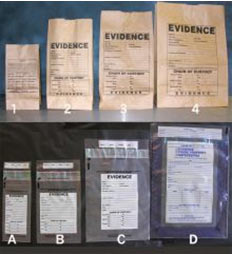
Typical Bags for Evidence Submission to Crime Laboratory
Merchant Warehouse Courts Hospitality Provider
Merchant Warehouse (Boston), which provides credit card processing, has forged closer ties with PointOS (Vero Beach, FL), provider of POS software for hospitality, resulting in the integration of the MerchantWARE Payment Gateway with PointOS Professional. With the new system, merchants can process, batch, and add gratuity entirely from the PointOS environment. Additionally, merchants can run pre-authorizations on credit cards when the tab is opened, make dynamic adjustments to credit card transactions such as refunds, voids, and gratuity, and set up daily auto-batch.
“The exclusive partnership that we have with Merchant Warehouse for integrated credit card processing allows us to provide our customers with the best product and prices possible,” remarked Daniel Kurland, developer of PointOS. “Our partnership also brings cost savings straight to us, which enables us to provide our customers with free technical support, the lowest priced software, and free updates. If we did not have this exclusive relationship, we would be faced with higher fees, so this is a huge benefit to our customers and our bottom line.”
“We are always looking to provide continued value to small and mid-sized businesses and the consumer,” added Henry Helgeson, Co-CEO of Merchant Warehouse. “This integrated solution brings unmatched reliability and cost-savings to the end-user, as well as added value to the Point of Sale vendor. We see great opportunities with this partnership and solutions like PointOS in the future.”
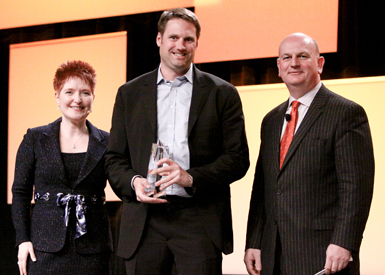
Henry Helgeson, Merchant Warehouse Co-CEO, Holds First Annual “ISO of the Year” Award from the Electronic Transaction Association Last April
Code
Corner
Charge Anywhere (South Plainfield, NJ) offered up its Mobile Payment Application for BlackBerry, which allows merchants to use Bluetooth-enabled card readers/receipt printers with such devices and qualify for swiped rates. New enhancements include user-friendly graphical interface with large icons and blue design theme. Charge Anywhere’s existing customers may upgrade to the new software at no cost as part of the developer’s quality assurance program. The software will also be made available to new customers on the Software-as-a-Service (SaaS) platform. “With the release of the new Mobile Payment Application for BlackBerry, Charge Anywhere maintains its leadership position in providing the latest in secure, mobile payment solutions to our valued customers and partners,” said Paul Sabella, President/CEO of Charge Anywhere. In addition, Charge Anywhere released Version 2.0 of its PCI PA-DSS compliant payment application for Microsoft Windows, enabling resellers to private label the solution, and featuring easy-to-use self-installer functionality for adding peripheral devices.
TradeBeam (San Mateo, CA) launched i-Supply 7.5, the latest version of its collaborative inventory management product. TradeBeam’s i-Supply 7.5 includes Late Delivery and Lean Logistics/No Order alerts, as well as new visual Stock Out and Promise indicators. All of these tools help businesses avoid administrative confusion between plants and suppliers, according to the SaaS-based developer, and all can be set up for delivery to the user’s e-mail or mobile phone. As its name would suggest, Late Delivery warns buyers that orders they have placed with their supplier have not been received at the delivery site. The Lean Logistics/No Order alert proactively notifies the supplier when trading lane requirements have not been generated for the predetermined order schedule because the buyer has enough material in the pipeline. Further, Stock Out and Promise indicators have been color-coded so businesses can easily identify which items have reached such status. “Businesses who rely on precise information to manage their supply chains require consistent real-time data to enhance their supply chain visibility,” said Buff Jones, President/COO of TradeBeam. “The new release of TradeBeam i-Supply 7.5 offers enhanced, easy-to-understand dashboards, significantly reducing management time and enabling better communication between plants and suppliers.”
INTEGRATION
Bluetooth Capped by Intermec
Intermec (Everett, WA) unwrapped its SD61 multiport wireless base station, which allows up to seven of the company’s Bluetooth-equipped scanners, such as the SF51 and SR61, to operate off the same mobile cart, PC, or printer. The device employs bi-directional communications, Bluetooth Class 1, and an ISCP secure connection. It allows any SD61 user to work within 100 meters, or 328 feet, from the base in open air. Users who stray too far receive visual notification from Intermec’s Ready-to-Work light as well as audio messages provided by the SF51 or SR61 scanners. Once users re-enter range they automatically reconnect to the system.
The SD61 provides maximum flexibility, reliability, and durability by enabling each wireless scanner associated with it to run independently with specific configurations. Installation takes place by reading the barcodes that accompany the base station, or online through Intermec’s EasySet configuration software, which also provides data editing tools. Furthermore, the SD61 was designed for industrial environments and can withstand up to 26 drops to concrete from four feet. Overall, it measures 4 in. x 4.5 in. x 1.4 in. and weighs 5.2 ounces.
“Intermec’s SD61 reduces downtime and the need to contact system administrators by allowing line managers and individual users to associate scanners to the system without having to gain access to the host computer,” indicated David Downey, GM of Intermec Data Capture Operations. “Wireless scanners can be connected and disconnected by simply reading the association barcode on top of the SD61--alleviating the need for additional dongles or software downloads, which can mean headaches for users.”
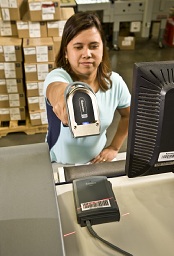
Intermec’s SD61 Wireless Base Station
A Hawk with Infinite Focus
Microscan (Renton, WA) introduced QX Hawk, described as the world’s first barcode imager to be fully integrated with liquid lens technology, enabling infinite focus flexibility. With aggressive X-Mode decoding, the QX Hawk reads any barcode symbology, including challenging, low-contrast 2D Direct Part Mark (DPM), within seconds of installation, according to the manufacturer. Advanced imaging technology, including liquid lens autofocus and modular zoom optics, removes the need for automation engineers to research multiple configuration options before deployment.
“Other products in the market today use liquid lens technology as an optional accessory to change focus, but at the expense of increased spherical aberration, or image distortion,” suggested Bruce Scharf, Microscan’s VP of Engineering. “Microscan’s liquid lens is deeply embedded within the imaging system of the QX Hawk and the optics assembly was designed around the liquid lens to allow the entire imaging system to be optimized, not just focus.”
In addition to its compact size for flexible positioning (2.3 in. x 3.8 in. x 1.6 in.), the QX Hawk features visible LED indicators, targeting laser pattern, “good read” green flash, and an EZ button for instant set-up and configuration. As an additional benefit, the QX Hawk leverages the latest dual-core ARM/DSP processor and integrated Ethernet protocols to allow both high-speed image capture and communication. According to Andy Zosel, Microscan’s Director of Product Marketing, “The QX Hawk bridges the gap between ease of use and performance. Traditionally, the only options for code readers with integrated optics were limited in performance and conversely the high-performance readers required external C-Mount optics and extra illumination.”
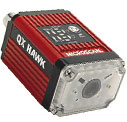
Microscan’s QX Hawk with Liquid Lens Technology
Key
Advertiser
Links
Be sure to visit these vendors for the latest in channel products and offers for resellers.
POS & Auto ID Distribution
BlueStar
ScanSource
POS & Peripherals
FEC USA
Logic Controls
Pioneer POS
POS-X
Barcode & Mobile Printers
Datamax-O'Neil
Cash Drawers
MMF Cash Drawer
Data Collection Terminals
CipherLab
Datalogic
Mobile
Honeywell Scanning & Mobility
Janam Technologies
Motorola
Integrated Payment Solutions
Datacap Systems
Keyboards
Cherry Electrical Systems
MICR Check Printers/Self-Service Kiosks
Source Technologies
Receipt
Printers
Bixolon America
Star Micronics
Retail Software
InfoTouch
Screen Protection
3M Optical Filters
Thermal Printers
Seiko Instruments USA
Video Surveillance & Access Control
ScanSource Security
INSTALLATIONS
Datalogic Locks Out Manufacturing Mistakes
Datalogic Mobile (Eugene, OR) has partnered with I&R Partners (Goodslettsville, TN) to provide mobile data collection for Statistical Process Control (SPC) in manufacturing environments. The solution has been implemented at Yale Commercial Locks and Hardware (Lenoir City, TN) and marries I&R Partners’ DC-Stat software and Datalogic Mobile’s Falcon rugged mobile computer. “What we have done is take the power of SPC and make it useful in a revolutionary way that cuts costs, cuts time, and impacts the bottom line with reduction in waste,” explained Paul Iannello at I&R Partners. “We put computing power in the hands of the operators so they have the information they need to make adjustments and prevent imperfect parts before they happen.”
During the manufacturing process at Yale, lock parts are checked for tolerances and precision using electronic instruments and gauges at individual machining centers. Previously, such records would be collected at the end of the day or shift, entered into spreadsheets, and graphed to show trend lines. After analysis, quality control personnel identified job lots needing to be reworked or discarded as scrap. Since this final review sometimes took several days after parts were created, loss could be significant.
Fortuitously, electronic instruments and gauges carry integrated serial ports for transmitting data. Now, such ports are connected to the Datalogic Falcon running DC-Stat software. As components are manufactured, machine operators inspect critical dimensions in real time, allowing corrective steps to be taken before parts fall out of tolerance. Simultaneously, data from the manufacturing process gets communicated wirelessly to the quality control department for constant monitoring. So far, Yale estimates it has reduced scrap by $25,000; now the company plans to implement the system across its entire plant.
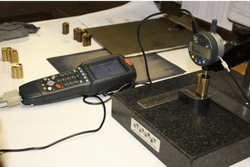
Datalogic Falcon Spots Bad Parts in Real Time
Radiant Serves “Legendary” Cowboys
Radiant Systems (Atlanta) has touted the successful implementation of its POS technology by Legends Hospitality Management (Newark, NJ), foodservice provider at the new Cowboys Stadium in Arlington, TX. The site includes more than 600 POS hardware terminals equipped with customer-order displays and Epson TM-T88IV printers, as well as software supporting foodservice operations for the stadium’s concession stands, bars, kitchens, and suites. With three million square feet, the new stadium comfortably holds 100,000 people and offers fans nearly 850 concession points. Stadium operators are using inventory management to run the commissary that provides food to individual outlets throughout the facility. In addition, foodservice managers have gained better insight into sales, costs, and efficiency through consolidated, above-store reporting, according to the two parties.
“We have developed our valuable partnership with Radiant as we have worked together on this complex and critical technology implementation,” stated Amy Phillips, Director of Sales and Catering at Legends Hospitality Management. “With the larger stadium, we are able to increase customer throughput and revenue through Radiant’s technology, and we look forward to the results we expect to see this season.”
Legends Hospitality was founded in 2008 by the New York Yankees, Dallas Cowboys, Goldman Sachs, and CIC Partners to capitalize on the hospitality and merchandising opportunities presented by the building of new stadiums for the two anchor teams. Opened this season, Yankee Stadium also implemented Radiant POS. Interestingly, Legends intends to extend its services to professional and college teams and other event facilities worldwide. “We fully intend to broaden and deepen our capabilities in the coming years through the combination of acquisitions, strategic partnerships, and continued internal growth,” commented Michael Rawlings, Chairman/CEO of Legends, and former President of Pizza Hut.

New Cowboy Stadium Opened with Loss to My New York Giants
Channel Factoid
The National Retail Federation has released its 2009 holiday forecast, projecting holiday retail industry sales to decline 1% this year to $437.6 billion. While this number falls significantly below the 10-year average of 3.39% holiday season growth (measured in November and December), the decline is not expected to be as dramatic as last year’s 3.4% drop in retail holiday sales nor as severe as the 3% decline in annual retail industry sales expected for all of 2009. Certain popular holiday categories such as apparel and electronics may experience deflation, however, as retailers become more aggressive with their discounts and promotions. “The expectation of another challenging holiday season does not come as news to retailers, who have been experiencing a pullback in consumer spending for over a year,” observed NRF President and CEO Tracy Mullin. “To compensate, retailers’ focus on the holiday season has been razor-sharp, with companies cutting back as much as possible on operating costs in order to pass along aggressive savings and promotions to customers.” NRF’s numbers exclude sales at automotive dealers, gas stations, and restaurants, it should be noted.
HELLO GOODBYE
Crall Taken to Autotask
Autotask Corp. (East Greenbush, NY) has added Mark Crall as its Executive Director of Community and Business Development. In his role at this new business unit, Crall has been charged with expanding the company’s user community, forging new industry partnerships, and strengthening ties into the broader IT service community, with particular emphasis on vertical markets and emerging technologies. Joining Crall in these efforts will be Brian Sherman, who has been promoted to Senior Director of Industry Alliances.
Crall formerly served as CEO of the managed service firm, Charlotte Tech Care Team, and also founded the Charlotte Small Business Server Group. “Mark was one of the first recipients of our Autotask MVP Award and has served as both sounding board and mentor to Autotask’s expansive community,” said Bob Godgart, Autotask’s CEO. “He’s a seasoned IT professional who understands what it takes to manage and run a successful IT service company.”
“As a customer over the past five years, I have gained enormous respect for the company, the people, and the way Autotask has evolved its products to fill a void of IT service and business management practices,” Crall shared. “I’m thrilled to have some real resources behind me now to focus on my mission of strengthening and serving the IT service community.”
[Editor’s Note: Autotask also launched its own “stimulus package” for IT channel players. “We’ve unbundled Autotask Go, our fully hosted service management software, and now small shops can buy an individual user seat starting at just $29 per month per reseller,” Bob Godgart, Autotask’s CEO, told RRN.Com.]

Mark Crall, Executive Director of Community and Business Development, Autotask
Director of Marketing Placed at Posiflex
Posiflex Business Machines (Hayward, CA) has hired Ron Chan as its new Director of Marketing. Chan brings over 20 years of senior management experience in product marketing, channel sales, business development, and strategic planning for companies such as Zhone Technologies, Lucent, Ascend Communications, NetFrame (now part of Nortel), 3COM, and IBM, in addition to several start-ups.
Commented Steven Young, CEO of Posiflex Business Machines: “Ron adds tremendous depth to the Posiflex team in a role that is particularly important as we launch new cutting-edge products into the POS and self-service kiosk markets. Our business partnership with top-of-class ISV and VAR channel partners requires not only highly reliable and best value hardware, but also channel programs and high-impact marketing for Posiflex-based solutions in the U.S. and Canada.”
“I came to Posiflex because of its technology leadership and reputation for reliability in the Point of Sale market,” Chan told RRN.Com. “A very pleasant surprise is to experience first-hand the company’s ability to swiftly design and build quality product, the effort to stay close to its partners and customers, but most of all the passion of its people. The POS terminal and peripheral market is very competitive and some vendors lead with price. In my short tenure at Posiflex, I can see price and reseller margins are important, but not more so than the founding principal that there is no substitute for quality.”

Ron Chan, Director of Marketing, Posiflex Business Machines
PinPoint Media
All Rights Reserved

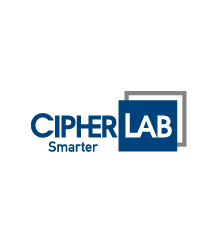
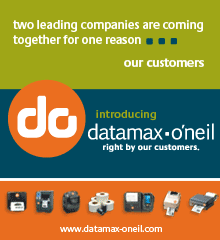




 600x120_8.25.gif)



